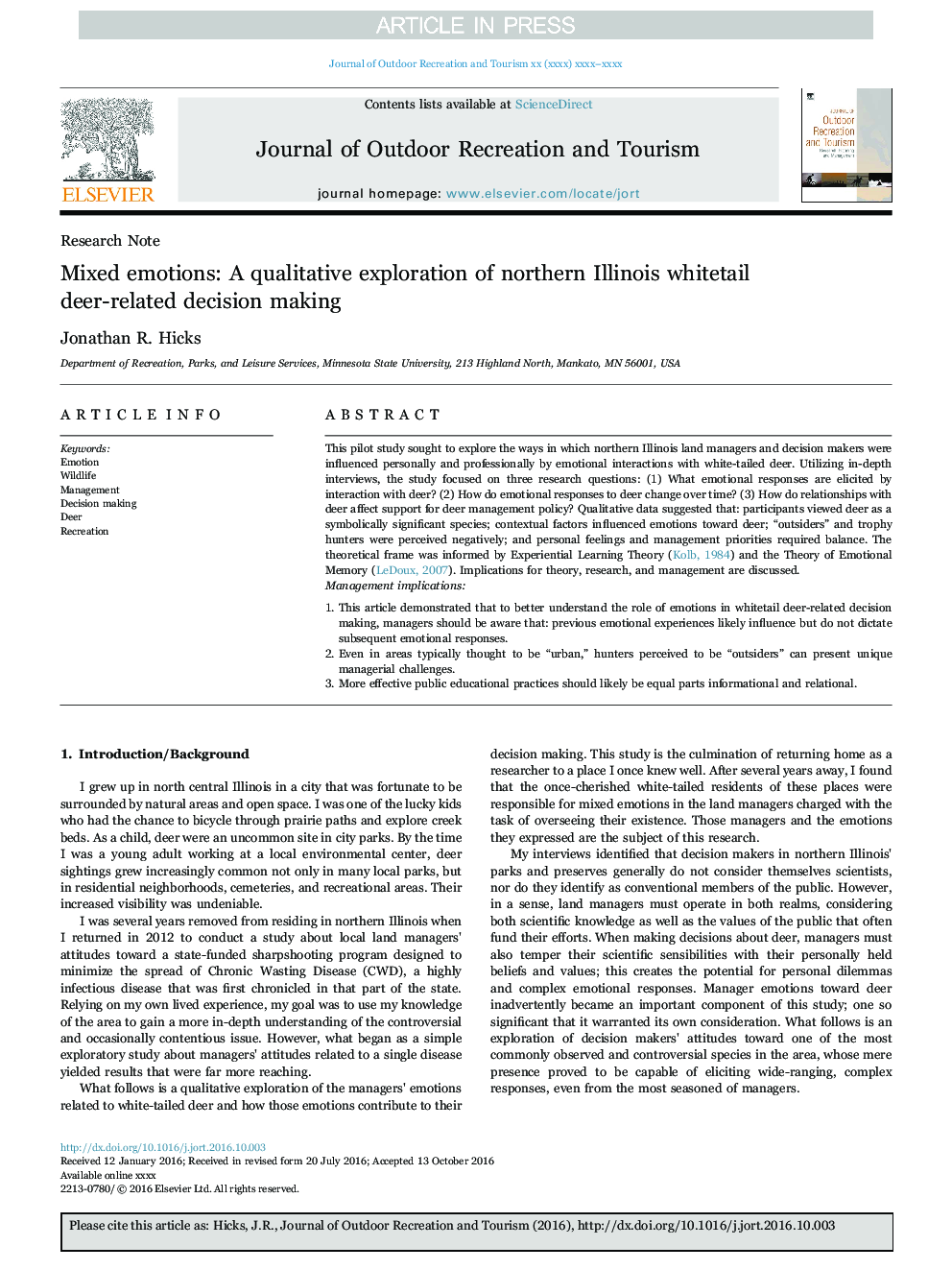| Article ID | Journal | Published Year | Pages | File Type |
|---|---|---|---|---|
| 4759902 | Journal of Outdoor Recreation and Tourism | 2017 | 9 Pages |
Abstract
This pilot study sought to explore the ways in which northern Illinois land managers and decision makers were influenced personally and professionally by emotional interactions with white-tailed deer. Utilizing in-depth interviews, the study focused on three research questions: (1) What emotional responses are elicited by interaction with deer? (2) How do emotional responses to deer change over time? (3) How do relationships with deer affect support for deer management policy? Qualitative data suggested that: participants viewed deer as a symbolically significant species; contextual factors influenced emotions toward deer; “outsiders” and trophy hunters were perceived negatively; and personal feelings and management priorities required balance. The theoretical frame was informed by Experiential Learning Theory (Kolb, 1984) and the Theory of Emotional Memory (LeDoux, 2007). Implications for theory, research, and management are discussed.Management implications1.This article demonstrated that to better understand the role of emotions in whitetail deer-related decision making, managers should be aware that: previous emotional experiences likely influence but do not dictate subsequent emotional responses.2.Even in areas typically thought to be “urban,” hunters perceived to be “outsiders” can present unique managerial challenges.3.More effective public educational practices should likely be equal parts informational and relational.
Related Topics
Life Sciences
Agricultural and Biological Sciences
Forestry
Authors
Jonathan R. Hicks,
